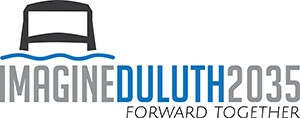News & Articles
Browse all content by date.

There’s a line in Bruce Hornsby’s song “Changes” that goes “them changes, where do we go from here?”
I was asking myself that same question after the Duluth City Council voted for and passed a climate emergency resolution at their last meeting. The resolution called for city government to develop and present a climate action plan to the city council in December of this year.
Many of us had spent the past several years lobbying and speaking at various council meetings asking the council members to officially acknowledge and address climate change.
So, while the city council sits and waits for that plan, what do we do? What do the citizens of Duluth do for the next eight months? Where do we go from here?
To begin, how do we elevate and expand the community conversation about climate change? How can we find opportunities to engage more people and groups in Duluth who will be impacted by climate change in the coming years? How do we bring that conversation to high schools, colleges, churches and synagogues and numerous civic organizations?
And how could we highlight and support the work of such groups and initiatives as Ecolibrium3, the Duluth Climate and Energy Network, Sierra Club, Duluth Climate Mobilization, Bag It Duluth, Duluth For Clean Water, Climate Emergency Poetry series, Minnesota Interfaith Power and Light, Citizens Climate Lobby, and the Minnesota Public Interest Research Group?
There are definitely a few specific things that we, the citizens of Duluth, could undertake or take action on before the city council receives the climate action plan in December.
Let’s start with the climate vulnerability report that was submitted to city government in the spring of 2018.
That report stated that the most vulnerable populations in our city to climate change are children less than 5 years old, senior citizens, the unemployed, minorities and the disabled.
Given that the city government hasn’t officially or publicly responded to that report, maybe it’s time for those social service organizations and community groups that serve these populations begin talking about this report, along with climate change and environmental justice, to their staffs and the people whom they serve. And maybe, these organizations and groups could begin talking to each other and finding ways to collaborate in the future.
Also, now would be a good time to set up or create a citizen’s climate council that could present new ideas or recommendations to city government as well as to provide some oversight and monitor the work of city government in addressing climate change.
We could engage and encourage various departments and commissions to incorporate climate change in any future plans or policies. This council could also represent a cross section of the greater community, and include members from various groups that are not normally involved in environmental and climate projects.
It’s also important that we reach out to all the local media and encourage them to carry more stories about climate change; especially stories about how climate change impacts the lives of people in Duluth.
From April 12-22, Covering Climate Now – a global journalism initiative – has been sponsoring the “Living Through The Climate Emergency” campaign, and asking all of their media partners to carry “human-centered stories” on how the climate emergency is seen and felt by ordinary people and how its playing out in people’s lives. Maybe, many of us throughout the city can find opportunities to share our own stories with family members and friends. And also share those stories with our elected officials.
Some other ideas include developing a community climate education program for adults or a climate education primer for high school teachers and students in St. Louis County.
Exploring the possibility of establishing an incubator for new sustainable small businesses. Engaging the creative arts community to organize public art projects that engage and educate the public about climate change.
The bottom line is that we don’t have to wait for the climate action plan or the city council to respond to climate change. We don’t have to wait until December. We can step up and take some initiative on our own and with others. It could start with simply becoming informed and then finding a way to get involved.
So today, take a few minutes to check out two new initiatives in our city.
Go to the Duluth Waterfront Collective’s website and read the article titled “Leaner. Meaner. Greener. Taking Duluth’s Fight Against Climate Change to the Streets” or the website for the Green New Housing Corporation in Duluth and read about its efforts to address the city’s compounding problems of a persistent housing shortage
| Tweet |


